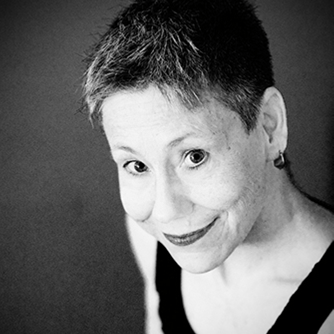In the current environment of relentless political strife, both the US and UK seem increasingly polarized. Debate deteriorates into name-calling; partisans morph into zealots, complex issues are reduced to binary terms, and hostility seethes just beneath the surface. To date, the discord has been restricted to verbal sparring; no arms have been taken up. Yet much of the world—torn by racial and ethnic conflicts, clashes between political or religious factions, and territorial disputes—has seen internal divisions escalate into war. Here we present a selection of writing that seeks to understand this volatile process and the experiences of those living with, and through, the internecine battles.
Political scientist Wendy Pearlman spent five years traveling through the Middle East and Europe collecting the stories of Syrians displaced from their savaged country. Among them was a doctor from the besieged town of Homs, who continued to treat the wounded even as the Syrian government appeared to deliberately target hospitals. His story reveals the harsh conditions under which he and his colleagues did their increasingly dangerous jobs. “Kareem” left Homs only when he knew another physician could take his place and shrugs off any suggestion of heroism: “I performed my role and there’s no need to talk about it.”
In an extract from Palestinian writer Abbad Yahya’s Crime in Ramallah, the adolescent Noor, the odd man out in his politically engaged family, struggles to live a normal teenager’s life in the thick of the intifada. Placid, more comfortable among girls, Noor is also grappling with identity and self-definition in a community noisy with war. Yahya’s book has been banned in the Palestinian Territories not only for its inclusion of gay characters but also because of its unflattering portrait of Palestinian government and society, and Yahya is stranded in Qatar, victim of both political and personal divisions.
Iraq’s Nawzat Shamdeen recalls the terror of the Iran–Iraq War. When a high-ranking officer disappears and is presumed murdered, his widow protects the life of her vulnerable only son, Tha’ir, by building a hiding place in the dank cellar. She cleverly disguises the entrance with an enormous portrait of Saddam Hussein and denounces her son as a deserter to her neighbors; momentarily safe, Tha’ir has ducked one form of imprisonment only to be forced into another. Like Yahya’s, Shamdeen’s writing has enraged politicians, and he now lives in exile in Norway.
By contrast, the steely young heroine of Salvadoran Claudia Hernández’s “Fifteen Years” not only meets the enemy but defies him. When a band of marauding deserters come looking for her absent guerilla father and attempt to kidnap and brutalize her, the fierce teen stands her ground and stares them down. Exasperated and unmanned, the men let her go; she survives to avenge their crimes.
While many of the narratives here detail violence and death, Pema Bhum’s gentle memoir of an adored teacher describes another sort of casualty. During the Cultural Revolution, Mao banned all languages but Chinese; Bhum’s native Tibetan language was banned, and anyone who even owned a grammar text was at risk for arrest. His teacher cannily circumvented that in the most subversive way possible: he used a Tibetan version of Mao’s Little Red Book in lieu of the textbook, turning the oppressor’s tool against him.
Turkish author Kemal Varol presents a more passive resistance in “Angels Who Wiped My Fate Clean,” narrated by Mikasa, a street dog turned minesweeper for Turkish forces in southeastern Turkey. Pining for his mate, Melsa, and yearning for the uncomplicated life he left behind, Mikasa halfheartedly sniffs out the occasional bomb and marks wherever he goes in the futile hope that his beloved will pick up the scent and find him. In the meantime, an unwilling recruit to a cause for which he cares nothing, he provides a telling portrait of the banality of war.
But not all this month’s stories take place in the thick of battle. Others consider its aftermath. Belgian artist Jeroen Janssen first traveled to Rwanda in 1990 to teach art; he fled during the genocide of 1994 and did not return until 2007. In his vivid Abadaringi, he draws from that and subsequent visits with his friends and neighbors, taking the pulse of the country after the clashes. In the wake of the war, the survivors are also facing new threats—”Global warming, the disappearance of the rain forests in the mountains, the building boom in the river basin”—that compromise their efforts at recovery.
Survivors of another ethnic conflict collide in Croatian writer Zoran Janjanin’s “Losing Ground.” Twenty years after the abrupt ending of their high school romance, Serbian Petra and Croatian Zvonko have an unplanned and not entirely welcome reunion. The stiff inquiries typical of such encounters bring a grim response: “Dad’s alive. Mom disappeared with Grandma and Grandpa in ’95. Your justice system informed me today that I have no right to compensation because they were killed in the war zone.” Their exchange deteriorates into the political debate they never had in their hormonal youth (“It wasn’t a civil war, Petra. It was a rebellion”); when Petra says, not so much bitter as matter-of-fact, “Twenty years ago we shared the most intimate things two people can share, but now we know nothing of each other,” she speaks for more than the two of them.
One of Jeroen Janssen’s weary friends remarks, of Rwanda, “The fears and insecurities of ordinary people are abused by both sides to conquer and divide: us against them.” We hope this selection informs, expands, and clarifies our readers’ understanding of the individuals caught in these battles and others. We note, as well, that the conflicts represented here escalated from verbal disagreements, from violent rhetoric turned declaration of war. While these stories need not be read only as cautionary tales, they serve to remind us of the consequences of inflammatory language, and the costs of converting those words into action.
© 2017 by Susan Harris. All rights reserved.









